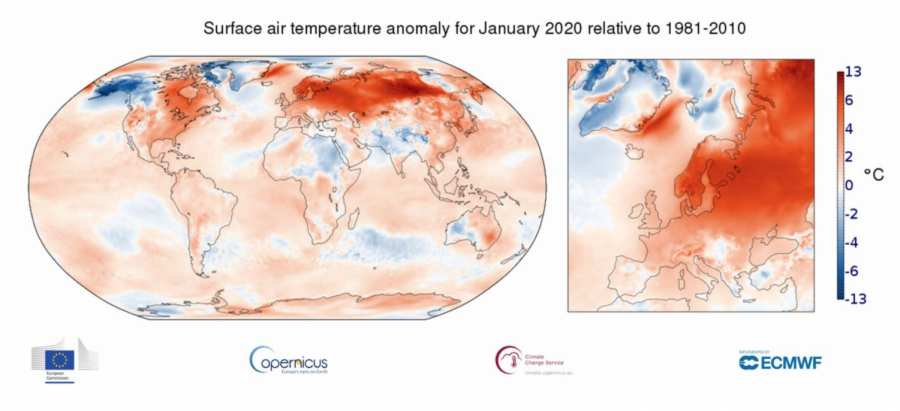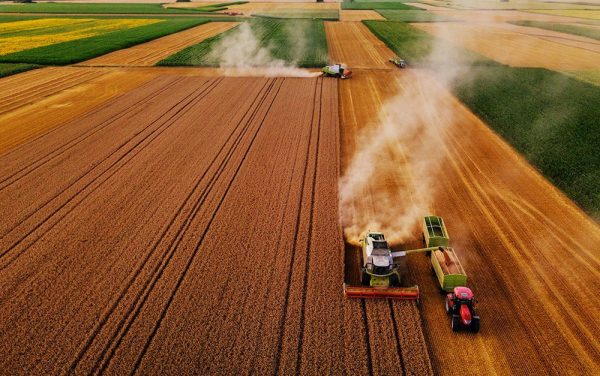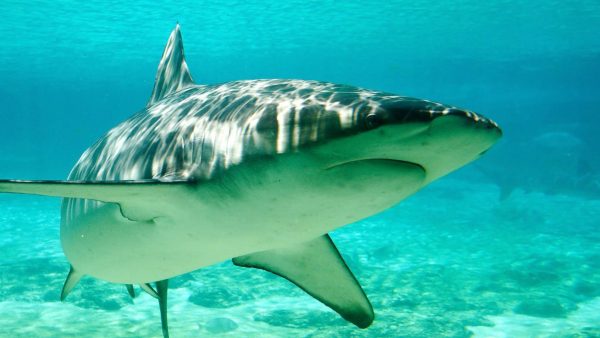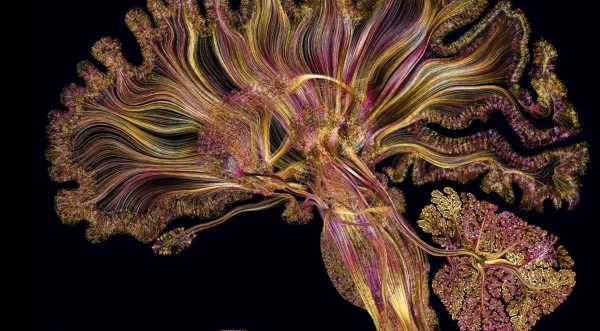Where Did Our Winter Go?
Whether it was the fact that we only had one “snow day” this year or that December and January averaged a temperature of about 43℉ and ranged from below freezing to as high as 70℉, people have noticed that this past winter has been quite warm. In fact, according to The Weather Channel, this winter (December 2019 – January 2020) has been the warmest on record for the contiguous United States. Furthermore, the past two months were warmer in many other parts of the world, including Russia, Norway, and other European countries.
Many students and teachers have been disappointed by this warm weather and saddened by the fact that we only got one “snow day” this winter. Why has this winter been so warm? When asking science teacher, Adam Keller, about what causes warmer winters, he said, “This mainly has to do with regional weather. So, we could have a warmer year this year and a colder year next year. And that has to do with regional currents like ocean currents and wind currents and how things are happening on a regional and local level. But when you start to look at overall trends where you see more warm years than cold years in our region, that’s when you start to see climate change playing out.”
A major part of global warming is the fact that climate events become more extreme. Keller explained, “The other piece of global warming, which is sort of “global weirding,” is the idea of unseasonably warm, unseasonably cold, the losing of spring and fall, and when we do get bad weather, it will come in bigger chunks that are more extreme. And that’s because, as the Earth warms, we dry out the soil, and so water flows into the ground less, so you get more flooding. Also, warm air holds more moisture, so you get more water in the air and so you get those extremes (of rainfall).”
However, we have to be cautious about making broad claims about the weather. As Keller explained, “For example, whenever we have a really cold day, we always get that person who says, ‘Where’s that global warming we’ve all been looking for?’ So you want to be a little careful with that because so much of our daily weather is built on…regional currents, especially things like El Niño, La Niña, and how the ocean currents are playing out. But it’s when we’re seeing more frequent weather that’s allowing for the warm weather. So, we see stacked warm seasons and you see a general trend. And this year has been extreme for sure with the lack of snow.”
Having one winter of warmer weather than usual does not immediately mean that climate change was the main or only cause of the warmer weather. As science teacher John Wilkinson said, “The warm winter is consistent with climate change trends, but one year of a warm winter doesn’t make for a constant change. But certainly it’s what you would have predicted with a warmer climate. This warm winter seemed to be a little bit more extreme than last year, but there’s natural variability.” There are also many impacts that warmer weather can have on the environment and natural ecosystems. As Wilkinson explained, warmer weather “sort of throws off the ecological relationships. So, for example, sometimes the signals that plants and animals use to know when to bloom, when to come out of hibernation, or when to come out of their egg will be temperature based, and sometimes it’s based on the length of the day and so the timing for things that are going to eat certain plants gets thrown off. Like if they are using the daylight, that stays the same and if the temperature changes, the plants are already gone by the time they come. So those kinds of ecological links can come undone.” Wilkinson also explained, “There is also a danger now, if there is one more freeze…the plants will have started to come out due to the warm weather, thinking that it’s spring, but if there’s one bad freeze later at the end, it will really damage the plants. But the good news is that it will kill off the mosquitoes when they come out. So it can be tricky if it sort of fools the plants and animals into thinking spring is already here.”
There are many other environmental impacts that come with having a warm winter. As Keller said, “You’ll have an earlier spring, so you’ll have speciation happening earlier. And the big thing in this area, especially right now, is going to be mosquitos. So, if we don’t get a cold snap between now and summer, you’re gonna see increased mosquito populations because the larvae are not going to die off.” Adam also explains, “When snow builds up, you get spring runoff and get a wetter spring. The fact that we don’t have that much snow means that water levels might be low, but we may have more seasonal runoff as we get more and more rain, and erosion.”
Many believe that Earth can be considered an organism itself because of the multitudes of life it contains, as well as the many positive and negative feedback loops that affect the environment. Wilkinson explained, “The climate system is a complex system and so there seem to be at least two states that are stable: the ice-age kind of state, which recently has been the dominant, and the inter-glacial state, which is what we have been in for the last 10,000 years approximatley. There is a chance that there is another stable state out there with the warming climate, but we don’t know because we haven’t been in this climate regime in human history so it’s just hard to say whether it’s going to restabilize where the negative feedback loops make it possible.” For example, if global temperatures were to increase 2-3 degrees celsius, it is possible that the temperature could still stabilize due to negative feedback loops. Or there could be no stop and you would eventually have a planet like Venus where there’s a spiraling greenhouse effect and it goes completely to the point where human life can’t exist.
Over the years, humans have developed more and more tools that help us be more resistant to factors that could decrease the population, allowing the population to grow more and more. Keller discussed, “There are certainly population stresses. I mean we see that in populations as they grow, they become more susceptible to larger die offs. And we, the human population, have been so intuitive. So we’ve done a couple things as a species: instead of creating a bunch of little populations, we’ve created a single big population that is sort of relying on each other and so there is some food stuff that is sort of not reliant on everything else. But we are such a global community right now and we’re such a huge population that, while we’ve been able to use our tools to sort of stave off sort of that big collapse, at some point, something’s gonna happen that’s gonna stress it and we’ll see that collapse. And so disease is one of those ways that keeps a population in check from getting to that high point where things sort of just collapse. So in some, disease is a check, or it has acted as a check within animal populations. We’ll see what happens to human populations… It’s really hard to gauge because we’re so good at managing and dealing with disasters. However, we’ve been talking about a breaking point [in the population] since I was a kid and technology keeps pushing that breaking point back. So, we’ll have to see if there is a point where technology stops being able to push it back.” From the time hunter gatherers began to domesticate plants and animals, to the industrial revolution, and to the current day, humans have been able to develop more and more technologies that allow the human population to grow, live longer, and be more resistant to events that could decrease the population such as diseases and other natural disasters.
With the occurrence of the coronavirus COVID-19, some people bring up the debatable idea that “humans are the virus on Earth.” This is interesting because as Keller said, about “Every ten years we get a series of movies about how we can’t keep pushing the human population back and the world is going to end, such as Avengers: Endgame, I Am Legend, and Kingsman. So you can look at popular media to see how the world is thinking about it at the moment. Popular villains such as Thanos say they need to save humanity by killing humanity, which has become popular in the last ten years. And a lot of that stems from concerns about population and population growth and resource availability and that’s a tension that we’re feeling as a species.” Ultimately, this COVID-19 pandemic is a hard situation for the entire world, but thousands of scientists and other medical experts are working together with technology in an attempt to develop more tests and eventually, hopefully, a vaccine. This is not the first time, and is probably not the last time, that a disease will wipe out a large portion of the human population. However, you can not deny the fact that our planet and environment has been suffering for a long time due to overpopulation and humans over exploiting the resources of this planet. A simple example of this is climate change and global warming and its effects on our environment. Since the pandemic occurred and countries have gone into lockdown, some parts of our planet have started to recover. Leave a comment below: Do you think humans are the virus on Earth?
Sources:
https://weather.com/news/news/2020-02-06-united-states-on-pace-record-warm-winter
https://www.cnn.com/2020/02/05/weather/record-global-january-2020-temperature-trnd/index.html

Hi, my name is Scout Crooke, and I’m a senior at SSFS. This is my third year on Newspaper and I enjoy writing about topics related to life and science....





